Written by Monica Garza
Meet Samantha Preston and Srikar Sadhu, junior biomedical engineering students at The University of Texas at Austin and co-founders of Sensibed Tech, a health-tech startup with social impact roots. Driven by the shared passion to ease pains they’ve both witnessed first-hand, the duo’s exploration of entrepreneurship led them to create an all-encompassing product of application that aims to prevent pressure ulcers through an effective and innovative practice solution.
Preston and Sadhu both grew up surrounded by healthcare influences within innovative medical hubs. Hailing from Princeton, New Jersey, Sadhu was raised in a booming healthcare epicenter, which ignited his interest in the field and eventually led to his inclination to pursue a biomedical engineering degree on the computational track. He is also pursuing a minor in business and a computational science and engineering certificate. “I want to combine my knowledge in healthcare in a more applied business sense, in technology,” Sadhu explains.
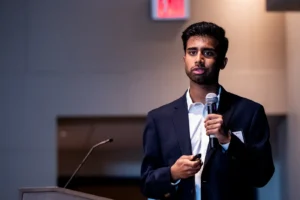
His exposure to the world of entrepreneurship began early in his youth. Sadhu’s father built a healthcare company that aimed to prevent heart attacks and blood pressure complications through wearable technology. Sadhu recalls, “I grew up going through that process with him, I watched him build a company from the ground up.” In high school, he obtained a broader understanding of entrepreneurship by competing in various hackathons. From D.C. to Boston, Srikar traveled to pitch multiple business ideas to investors, always with the objective of alleviating medical complications. “That’s really when I started understanding how I can use engineering in a more practical sense to sell something,” notes Sadhu.
Originally born in Ethiopia and raised in Frisco, Texas, Preston also grew up inspired by healthcare influences. “A lot of my family is in the healthcare industry and I knew it was something I wanted to [pursue in my career], but in more of a technical and analytical respect,” says Preston. During high school, she got involved in her school district’s Engineering Career Center where she gained knowledge in the mechanical engineering field. Preston also got involved in rehabilitation research and worked within the physical training sector of sports medicine. Samantha elaborates, “My mentor and the other students were working with me on innovative ways to heal [athletes] faster … and I felt that that was just such a fascinating thing.” Soon after, her interest in engineering and innovation intertwined with her passion for healthcare and Preston went on to begin her pursuit of a degree in biomedical engineering.
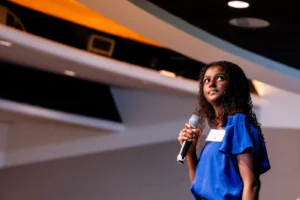
It was after joining a business organization during her freshman year at UT that Preston discovered her passion for healthcare entrepreneurship. Opening the door to the world to product management, her experience in the organization led her to explore roles in business and technology that she greatly enjoyed. “That’s how I really learned more about entrepreneurship, how you can truly make a change and impact,” Sam recalls.
Preston and Sadhu’s inspiration for Sensibed Tech was sparked by their collective second-hand experiences with two common healthcare issues: understaffed hospital units and inpatient care complications. When Sadhu’s grandfather was hospitalized after a motorcycle accident, Sadhu remembers noticing an obviously imbalanced ratio between patients and nurses.
“He wasn’t that well taken care of and when we went to [visit him in] the hospital, we saw that he was developing pressure ulcers. That’s really where my awareness of the problem stemmed from,” Srikar explains.
As a nurse, Preston’s older sister is all too familiar with the difficulties of caring for a large demand of patients. Preston noticed the struggle nurses face with detecting and treating pressure ulcers due to their focus on other expansive tasks for their large patient bases. “Finding a way to alleviate [those struggles] and make her job easier was how I got connected to the issue,” explains Sam. After meeting at UT Austin, Preston and Sadhu would then go on to collaborate as founders to provide an innovative solution to this all too commonly faced problem.
Considering both sides of the issue, Sensibed Tech aims to be both patient and nurse-centric. “Our solution is essentially trying to think about both sides of the problem,” Sadhu says, “We’re trying to create a product that is tracking ulcer formation and alerting nurses so they can go in and invert the patient.” Preston and Sadhu are aiming to utilize the advancement of tele-health to develop a physical product to address the issue.
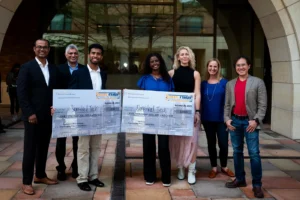
Eager to secure funding for their startup, Preston and Sadhu applied for and placed as finalists in the 2021 Freed Family Pitch Competition, known as DisruptTexas at the time. Two years later the team returned to the competition, taking home yet another finalist placement. Sadhu describes the competition as his favorite entrepreneurship resource he’s participated in, accrediting the experience for a large part of his professional development as a student founder. “The experience taught me how to connect with investors after the competition, how to take feedback and criticism properly, and also how to pitch an idea to people from various backgrounds,” shares Srikar.
In spring 2023, Sensibed Tech also secured a coveted seat in the the Forty Acres Founders Program, a pre-accelerator program offered by the Herb Kelleher Entrepreneurship Center (HKEC). “It was a great opportunity to get more feedback and connect with more people in the healthcare space,” Sadhu says about the program. In the Forty Acres Founders Program, founders gain a deeper understanding of customer targeting, user testing, and market analysis. Preston describes the program’s educational opportunities as the part she most significantly benefited from.
“As biomedical engineering students, we don’t really learn about how to answer the needs of our customers, how to segment our customers, how to do market analysis, so that type of knowledge was really helpful to obtain from the Forty Acres Founders Program,” Preston says. “It really helped me understand how to obtain our customers,” Sadhu adds.
In addition to the HKEC’s programs, Preston and Sadhu have also taken advantage of many other entrepreneurship resources offered on UT’s campus. Sensibed Tech was awarded funding from The LaunchPad’s StartUP Grants program, and Sadhu spoke on the beneficial ways that the grant helped them understand efficient ways to utilize funding. The pair also noted in particular their positive experiences with Texas Momentum and Texas Venture Strategy.
Working on Sensibed Tech has also provided the team with increased networking and professional development growth opportunities. Preston expresses the unexpected way that working on a startup has provided her with opportunities to explore the avenue of venture capital through a summer position. “You really grow so much in the whole process in terms of understanding more about real-world, hands-on experiences,” Preston says.
For aspiring entrepreneurs, Preston and Sadhu assert the importance of being open-minded throughout the process, developing effective time management skills, and being flexible to startup changes:
“I definitely feel like entrepreneurship is not linear, it’s not a straight journey. It’s something that’s going to have ups and downs. You may have an idea, but that idea is going to evolve into something better or different than you originally thought of… you need to be open to changing your strategy,” advises Sadhu.
Sadhu also offers his words of encouragement to people feeling reluctant to begin their entrepreneurship journey:
“Don’t be scared to try something out because without trying, you’re never going to know if you’re going to succeed… you never know what’s going to happen and it could turn into something really exciting and something that can make a huge effect.”
The future trajectory of Sensibed Tech is to advance on to the prototyping phase. By utilizing their secured funding and grants, Preston and Sadhu plan to manufacture their prototype and hope to begin implementing their innovative solution in hospitals and nursing homes in 2024. Sadhu offers his definition of entrepreneurship as “taking something and not just building it, but selling it,” he adds, “I think that’s the point we’re getting to currently as we’re focused on developing our prototype.” Until then, the pair says they currently consider themselves ‘founders of an idea.’
—
This article is from the FOUNDER STORIES series, a feature article series published by the Herb Kelleher Entrepreneurship Center (HKEC) that highlights UT Austin student founder success stories and how the HKEC has played a role in their entrepreneurship journey. The HKEC offers a variety of dynamic resources to UT Austin students, including competitive funding opportunities, networking events, informative article series, mentorship and more.
To learn more about the entrepreneurship resources that the HKEC has to offer, visit our website at uthkec.com to get involved with future opportunities!

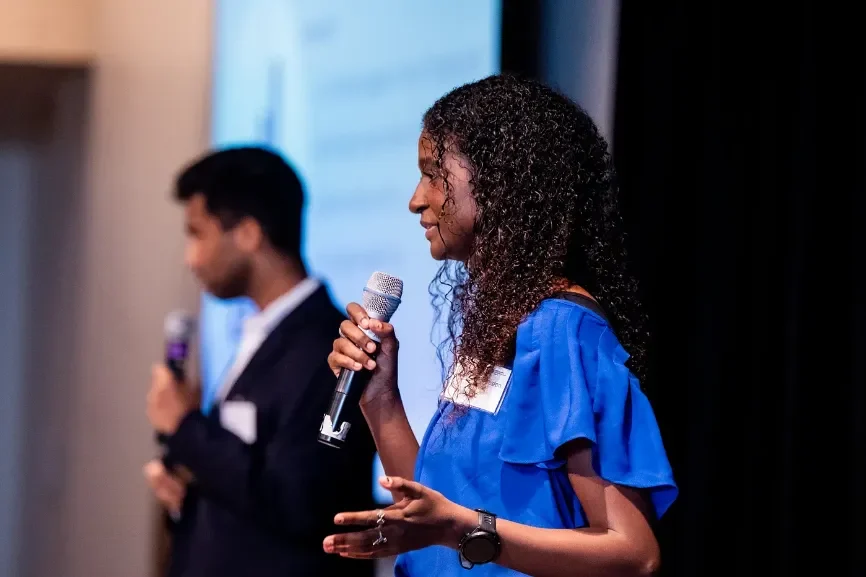
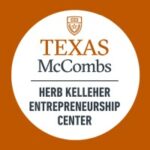
No comments yet